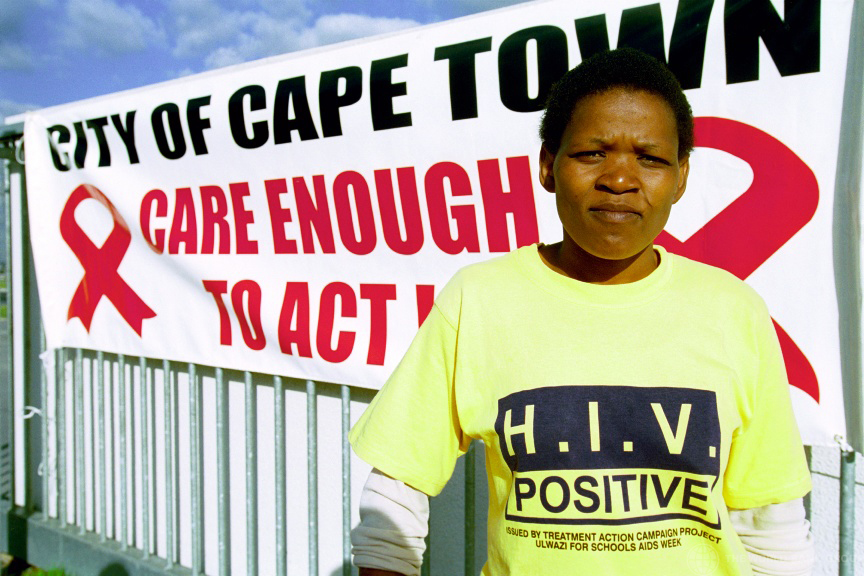In the age of Ebola, it’s only too easy to forget other ongoing health crises like HIV and AIDS. But countries with large AIDS populations don’t forget, and neither do the world’s most powerful and profitable brand-name pharmaceutical manufacturers. The reminder came in South Africa earlier this year but is only now garnering the wider attention it deserves.
The story involved a highly respectable network consisting of a leading Washington lobbying firm headed by a senior associate of the George W. Bush administration working for Big Pharma companies in the United States and South Africa. We all know who they are. We use their products every day.
Their target was the government of South Africa. Their objective was to pressure that government into making it harder for generic drug manufacturers to make low-cost drugs for poor AIDS patients. Their operating principle was secrecy. Their plan was to run a covert half-million dollar campaign in South Africa through a phony grass-roots organization, “Forward South Africa”, that would fight for stronger patent protection (or intellectual property laws) for the giant drug manufacturers. Their outcome would be vastly inflated drug prices. Their prize was even greater profits for Big Pharma. Their victims would be the hundreds of thousands, probably millions, of AIDS sufferers in South Africa who could not afford the higher prices.
It’s all set down in a nine-page document with the propaganda-laden title “Campaign to Prevent Damage to Innovation from the Proposed Draft National IP Policy in South Africa”. It was prepared by the Washington lobby firm Public Affairs Engagement on behalf of Big Pharma — officially, the Pharmaceutical Research and Manufacturers of America, or PhRMA — and their South Africa chapter. PAE’s chair is Ambassador James Glassman, a close associate of the George W. Bush administration and long-time senior fellow of the right-wing American Enterprise Institute.
Here indeed is the ugly face of capitalism. Fortunately, these machinations were fully exposed earlier this year by the South Africa newspaper Mail & Guardian. In reaction, South Africa’s Minister of Health, Dr. Aaron Motsoaledi, didn’t mince words. He accused the pharmaceutical companies of planning what amounts to mass murder. “This is genocide”, he told the paper, a conspiracy of “satanic magnitude.” They put corporate profits before health, the Minister asserted, and no one who knows the ways of Big Pharma could doubt this to be true.
After all, it wasn’t that long ago when AIDS medications were the monopoly of these western-based multinational drug companies and per person treatment could easily be $15,000 a year. Along came the generics, mostly from India, and the price magically dropped to as little as $200 or even less. South Africans still recall with fury how Big Pharma companies fought bitterly to retain their monopoly against the generics.
As if post-apartheid South Africa didn’t have enough challenges to overcome, it’s quite possible the country had more bad luck in dealing with AIDS than any other in the world. The sheer numbers of those infected were grotesquely high, and the incidence rate was among the highest in the world. Its second president, Thabo Mbeki, proved to be a reckless AIDS denier, under whom affordable AIDS treatment was denied to countless affected South Africans. Researchers at Harvard have calculated that Mbeki’s policies were responsible for the loss of some 365,000 lives.
Since Mbeki, South Africa has made vast strides in combating its AIDS crisis. When I was active in the fight against AIDS a few years back, some 25 per cent of all South Africans were thought to have the HIV virus and there was real concern the country would not survive; what that meant was never clear, but it felt plausible. Now South Africa has almost 2.5 million people on antiretroviral drugs, more than anywhere else in the world. Life expectancy has increased dramatically, mother-to-child transmission has declined dramatically.
But as a reflection of how profound the crisis was, this remarkable progress still leaves the country with a massive HIV and AIDS problem. Anywhere else it would be called a catastrophe. Six million South Africans remain infected. Well over a third of a million new infections occur every year. As The New York Times has noted, that’s seven times as many new infections annually as in the United States, which has six times South Africa’s population and incomparably greater wealth and resources to cope. Yet because in African terms South Africa is so prosperous, critical outside funding assistance is being shifted to poorer countries. Costs remain enormous, an onerous burden for the country. The very last thing in the entire world that South Africa’s AIDS sufferers need is higher drug prices like in the terrible old days.
Under the withering glare of unwanted publicity, Big Pharma ditched its dirty little South Africa caper. When he was the UN’s Special Envoy for AIDS in Africa, Stephen Lewis repeatedly attacked Big Pharma as an obstacle to fighting the pandemic. It seems, alas, that little has changed.
This article originally appeared in The Globe and Mail.
Photo: Flickr/WorldBank



